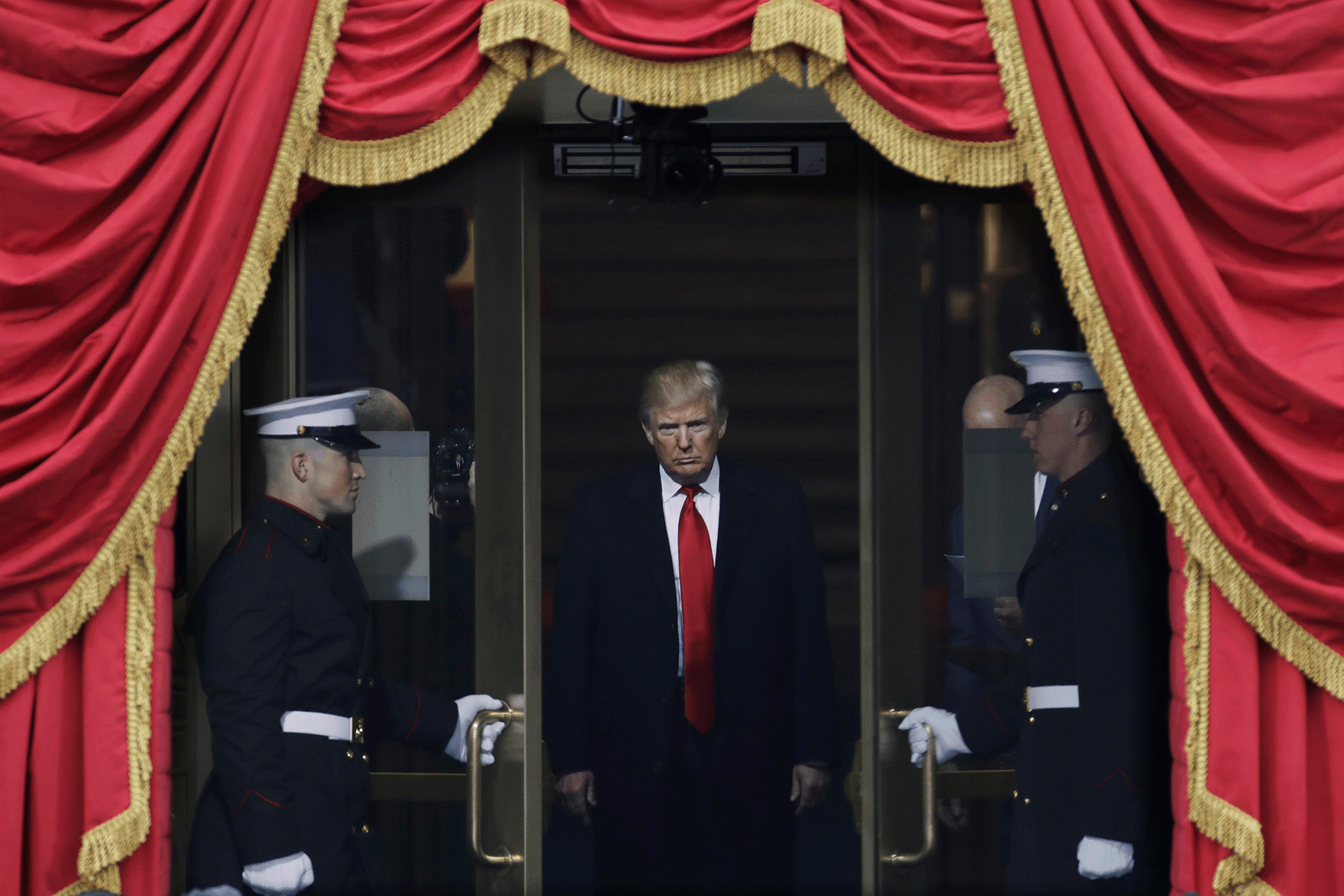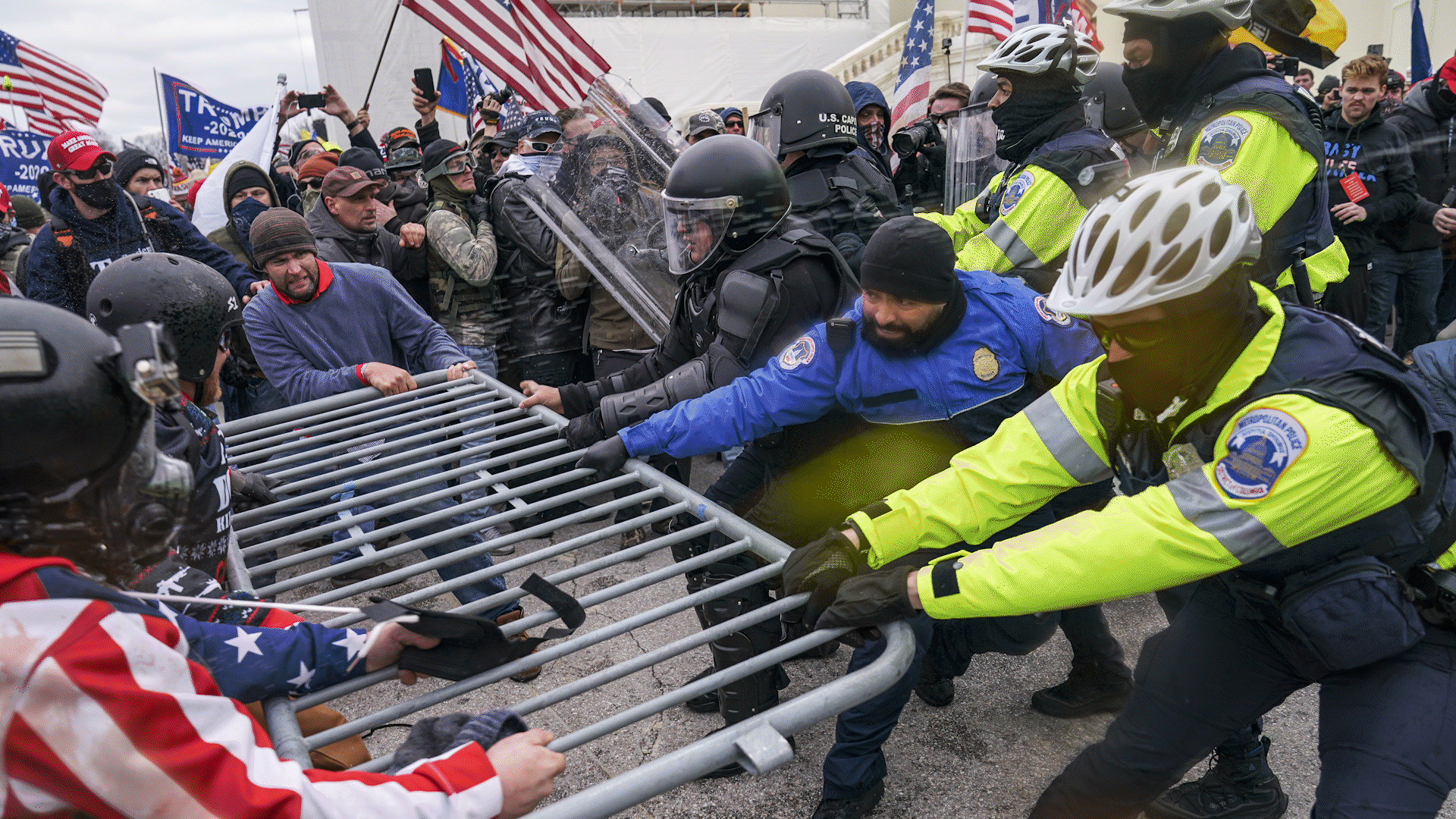Pandemic, threats of violence taint Biden's debut

The coronavirus pandemic and threats of violence made the inauguration of the 46th president one of the most unusual in American history.
Some 200,000 American, state and territorial flags were planted on the National Mall to represent people who could not attend because of COVID-19, which has killed 400,000 people in the United States. In the past, the Capitol was packed with thousands trying to witness history.
Guests and spectators attend the 59th Presidential Inauguration for President Joe Biden at the U.S. Capitol in Washington, Jan. 20, 2021. (AP Photo/Susan Walsh, Pool)
Barack Obama arrives for his inauguration at the U.S. Capitol in Washington, Jan. 20, 2009. (AP Photo/Susan Walsh)
This year, VIPs were seated several feet apart, and they wore facial masks to prevent the spread of the virus. In 1961, the world could see every expression on President John F. Kennedy’s face. Biden’s face was covered with a mask except for when he spoke.
The Capitol, the epicenter of democracy that was invaded by violent loyalists of former President Donald Trump just two weeks ago, was surrounded with multiple rings of heavy steel fencing, topped with razor wire. Streets and bridges were closed. Intersections were blocked with dump trucks.
Instead of throngs of waving Americans lining the streets, an estimated 25,000 armed National Guard members patrolled the eerily quiet city. The inaugural parade was abbreviated, most of it held virtually.
When Biden walked down Pennsylvania Avenue and into the White House, his mask hid his emotion, a stark comparison to the toothy smile former Jimmy Carter displayed when he arrived as president in 1977.
President Joe Biden speaks during the 59th Presidential Inauguration at the U.S. Capitol in Washington, Jan. 20, 2021.(AP Photo/Carolyn Kaster)
President John F Kennedy gives his inaugural address at the Capitol in Washington, on Jan. 20, 1961, after he took oath of office. (AP Photo)
Kamala Harris is sworn in as vice president by Supreme Court Justice Sonia Sotomayor as her husband Doug Emhoff holds the Bible during the 59th Presidential Inauguration at the U.S. Capitol in Washington, Jan. 20, 2021. (AP Photo/Patrick Semansky, Pool)
Vice President Al Gore takes the oath of office from Justice Byron White, far right, as his family, Albert III, left, wife Tipper, center, and Karenna, right, watch on the west steps of the Capitol during inauguration ceremonies in Washington, Jan. 20, 1993. (AP Photo/Ron Edmonds)
Congressional members and guests arrive for the 59th Presidential Inauguration at the U.S. Capitol in Washington, Jan. 20, 2021. (AP Photo/Patrick Semansky, Pool)
Thousands gather on Capitol Hill on Jan. 20, 1993, as President Clinton takes the oath of office as the 42nd president of the United States. (AP Photo/Ron Edmonds)
President Joe Biden, First Lady Jill Biden and family, walk near the White House during a Presidential Escort to the White House, Jan. 20, 2021, in Washington. (Doug Mills/The New York Times via AP, Pool)
President Jimmy Carter waves to the crowd while walking with his wife, Rosalynn, and their daughter, Amy, along Pennsylvania Avenue from the Capitol to the White House following his inauguration in Washington, Jan. 20, 1977. (AP Photo/Suzanne Vlamis)
A U.S. Army band marches near the White House during the Presidential Escort, part of Inauguration Day ceremonies, Jan. 20, 2021, in Washington. (AP Photo/David J. Phillip)
A military unit marches down Washington's Pennsylvania Avenue past the reviewing stand during the inaugural parade held after Ronald Reagan was sworn in as the nation's 40th president in Washington, Jan. 20, 1981. (AP Photo)





